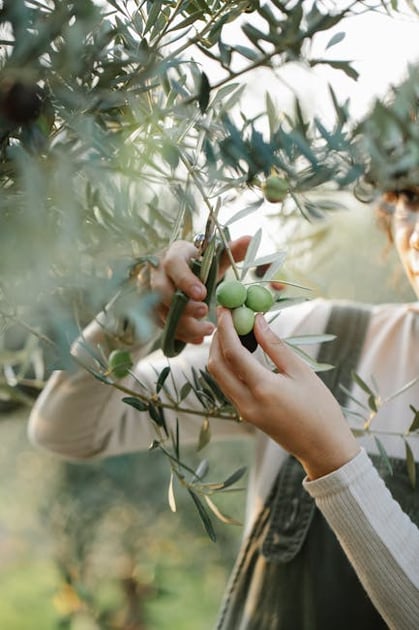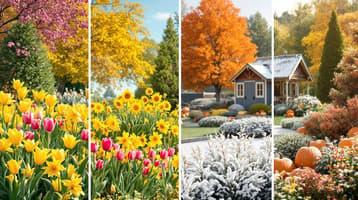Is Linseed Oil Safe for Garden Beds? Benefits and Precautions

Content Outline
- Introduction
- A. What is linseed oil?
- B. Benefits of using linseed oil in garden beds
- C. Precautions when using linseed oil in garden beds
Welcome to our comprehensive guide on whether linseed oil is safe for your garden beds. When it comes to gardening, the choice of materials used can have a significant impact on plant health and soil quality. In this article, we will delve into the potential benefits and tradeoffs of using linseed oil in your garden beds.
Benefits of Using Linseed Oil in Garden Beds
- Linseed oil is a natural product derived from flaxseeds, making it an eco-friendly choice for gardeners concerned about sustainability.
- It can help protect wood from moisture damage, extending the lifespan of raised garden beds.
- Linseed oil has been shown to have some potential benefits for soil health, such as improving water retention.
Potential Tradeoffs and Considerations
- While linseed oil is generally considered safe for garden use, there are some concerns about its potential impact on soil microbiology. Some studies suggest that certain oils, including linseed oil, may have antimicrobial properties that could affect beneficial soil organisms.
- It is important to use linseed oil in moderation, as excessive application can lead to an accumulation of oil in the soil, potentially causing harm to plants.
According to a study published in the Journal of Agricultural and Food Chemistry, linseed oil contains essential fatty acids that may benefit plant growth when used in appropriate quantities. However, it is crucial to follow best practices and guidelines to avoid any negative consequences.
Stay tuned for our upcoming articles where we will delve deeper into the topic of linseed oil safety for garden beds.
What is linseed oil?
Linseed oil, also known as flaxseed oil, is a natural oil extracted from the seeds of the flax plant (source). It has been used for centuries in various applications due to its versatility and beneficial properties.
- Linseed oil is commonly used as a wood finish due to its ability to penetrate the grain and protect the wood from moisture and wear.
- It is also used in painting and as a binder in oil paints, contributing to the flexibility and durability of the paint film.
- One of the lesser-known uses of linseed oil is in garden beds. When used correctly, linseed oil can help protect the wood of garden beds from the elements and extend their lifespan.
When considering whether linseed oil is safe for garden beds, it's important to weigh the benefits and potential drawbacks.
Benefits of using linseed oil in garden beds:
- Provides a natural and environmentally friendly way to protect wood from moisture and decay.
- Can help preserve the appearance of the garden beds, giving them a rich and warm finish.
However, there are also some considerations to keep in mind:
- Linseed oil takes time to cure and may emit a strong odor during the drying process.
- Repeated applications may be necessary to maintain the protective coating.
Overall, when used properly and in moderation, linseed oil can be a safe and effective option for protecting garden beds (source). However, it's essential to follow recommended application techniques and consider the tradeoffs involved in using this natural product.
When it comes to maintaining a thriving garden, the benefits of using linseed oil in garden beds cannot be overlooked. Linseed oil, derived from flaxseeds, offers a range of advantages that can help enhance the health and longevity of your plants.
- Natural Pest Repellent: Linseed oil has been found to act as a natural pest repellent, deterring common garden pests such as aphids and mites. This can help protect your plants from potential damage caused by these insects.
- Soil Conditioning: The application of linseed oil in garden beds can help improve soil quality by providing essential nutrients and promoting microbial activity. This can lead to better plant growth and overall garden health.
- Water Retention: Linseed oil can help the soil in garden beds retain moisture more effectively, reducing the need for frequent watering. This can be especially beneficial in dry climates or during periods of drought.
Furthermore, using linseed oil in garden beds is not only beneficial for plant health but also for the environment. Linseed oil is a biodegradable and eco-friendly option, making it a sustainable choice for gardeners looking to minimize their environmental impact.
It is important to note that while linseed oil offers numerous benefits for garden beds, it is essential to use it in moderation to avoid any potential negative effects on plant growth. Additionally, always ensure that the linseed oil used is organic and safe for garden beds.
Overall, incorporating linseed oil into your gardening routine can be a safe and effective way to improve the health and vitality of your garden beds. With its natural pest-repelling properties and soil-conditioning benefits, linseed oil is a valuable addition to any garden maintenance regime.
For more information on whether linseed oil is safe for garden beds, refer to this informative article.
When it comes to using linseed oil in garden beds, there are several precautions that gardeners should keep in mind to ensure the safety and health of their plants. Linseed oil, derived from flax seeds, is a popular choice for protecting wood and adding a natural finish to garden furniture and structures. However, when using linseed oil in garden beds, there are some important considerations to take into account.
- Choose Cold-Pressed Linseed Oil: When selecting linseed oil for your garden beds, opt for cold-pressed varieties. Cold-pressed linseed oil is less processed and retains more of its natural properties, making it a safer option for your plants. Source
- Apply Sparingly: While linseed oil can help protect wood from the elements, it should be applied sparingly in garden beds. Excessive use of linseed oil can lead to a buildup that may harm plants over time.
- Monitor Soil Absorption: After applying linseed oil to your garden beds, keep an eye on how the soil absorbs the oil. If you notice pooling or runoff, it may be necessary to adjust the application to prevent over-saturation.
- Consider Alternatives: While linseed oil can be a beneficial addition to garden beds, it's essential to weigh the tradeoffs. Some gardeners may prefer to use alternative natural finishes or protective coatings that offer similar benefits without the risks associated with linseed oil.
Overall, when used responsibly and in moderation, linseed oil can be safe for garden beds. By following these precautions and considering the potential tradeoffs, gardeners can enjoy the benefits of linseed oil while protecting the health of their plants.
For more information on whether linseed oil is safe for garden beds, check out this comprehensive guide.
Related Articles

Creating Your Own Garden of Eden: A Guide to Sustainable Gardening Practices
Discover the beauty and tranquility of creating your own Garden of Eden. Learn about sustainable gardening practices, plant selection, and eco-friendly tips to transform your space into a harmonious sanctuary.

Is Pine Sawdust Good for Your Garden? Benefits and Precautions
Discover the benefits of using pine sawdust in your garden for improved soil aeration, organic matter, and weed suppression. Learn how to effectively incorporate pine sawdust while considering precautions for optimal garden health.

How to Get Rid of Garden Fungus: Prevention and Treatment Methods
Learn how to prevent and treat garden fungus with proper watering techniques, soil management, crop rotation, and natural or chemical remedies. Keep your garden healthy and thriving!

How AI Updates Garden Designs for Each Season
AI tools transform garden design by providing tailored planting advice and seasonal care tips, ensuring vibrant gardens year-round.

Budget-Friendly Ways to Fill a Raised Garden Bed
Discover cost-effective strategies and materials to fill your raised garden bed without breaking the bank. Learn how to improve soil quality, source free compost, create your own compost, and utilize mulch effectively.

The Ultimate Guide to Using Pine Shavings as Mulch for Your Garden
Discover the benefits and drawbacks of using pine shavings as mulch in your garden. Learn how to apply and maintain pine shavings for optimal results.